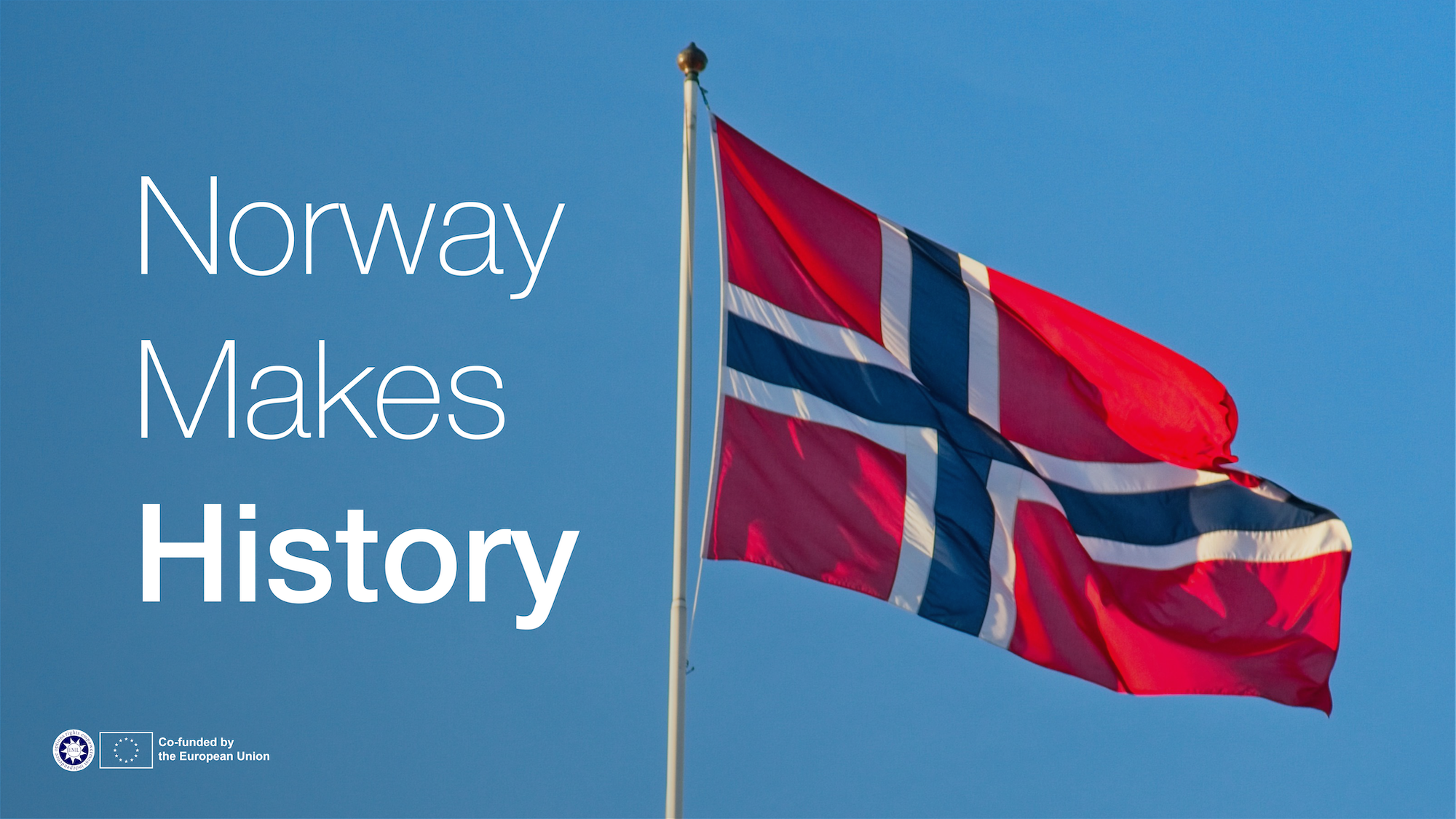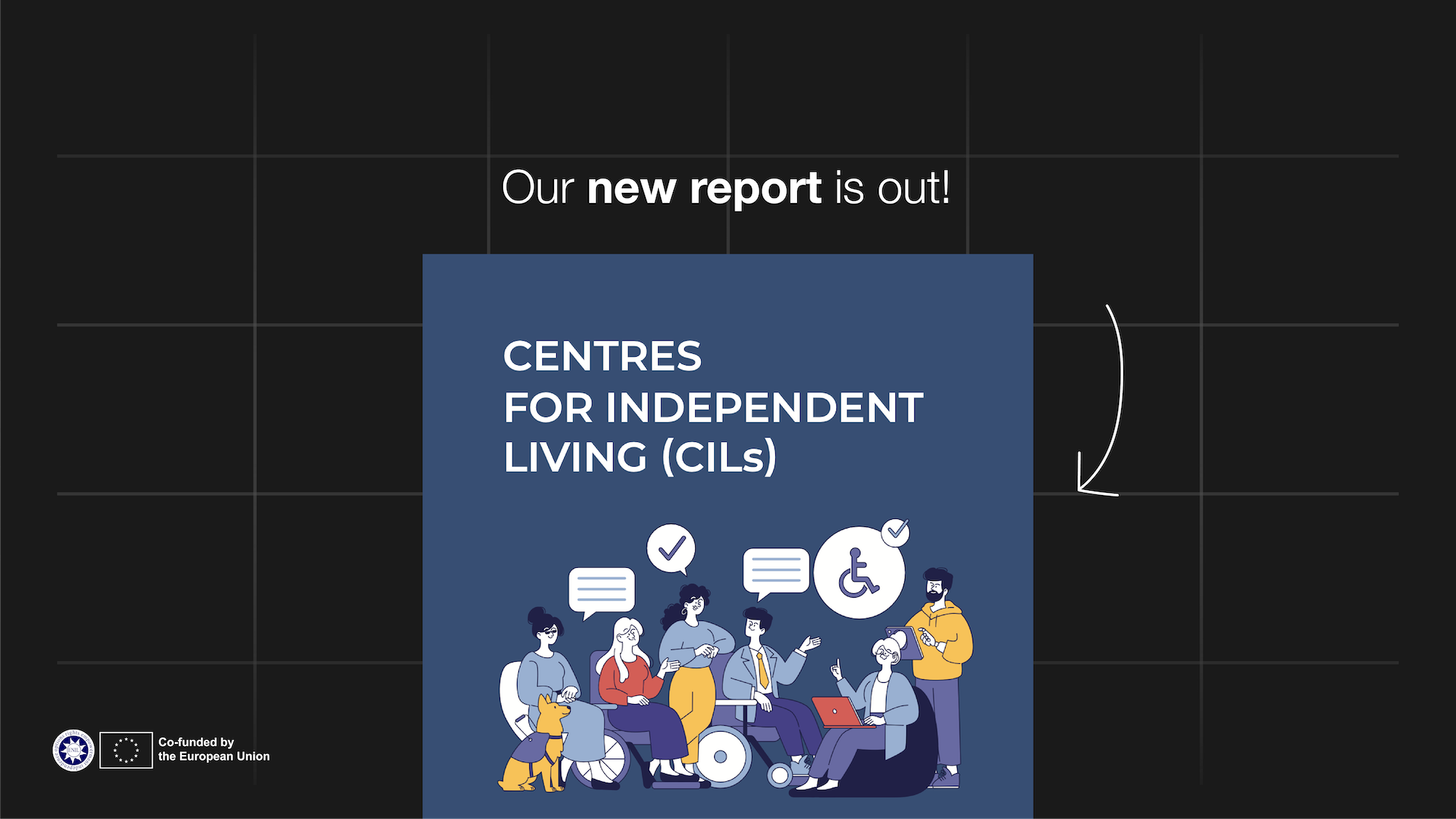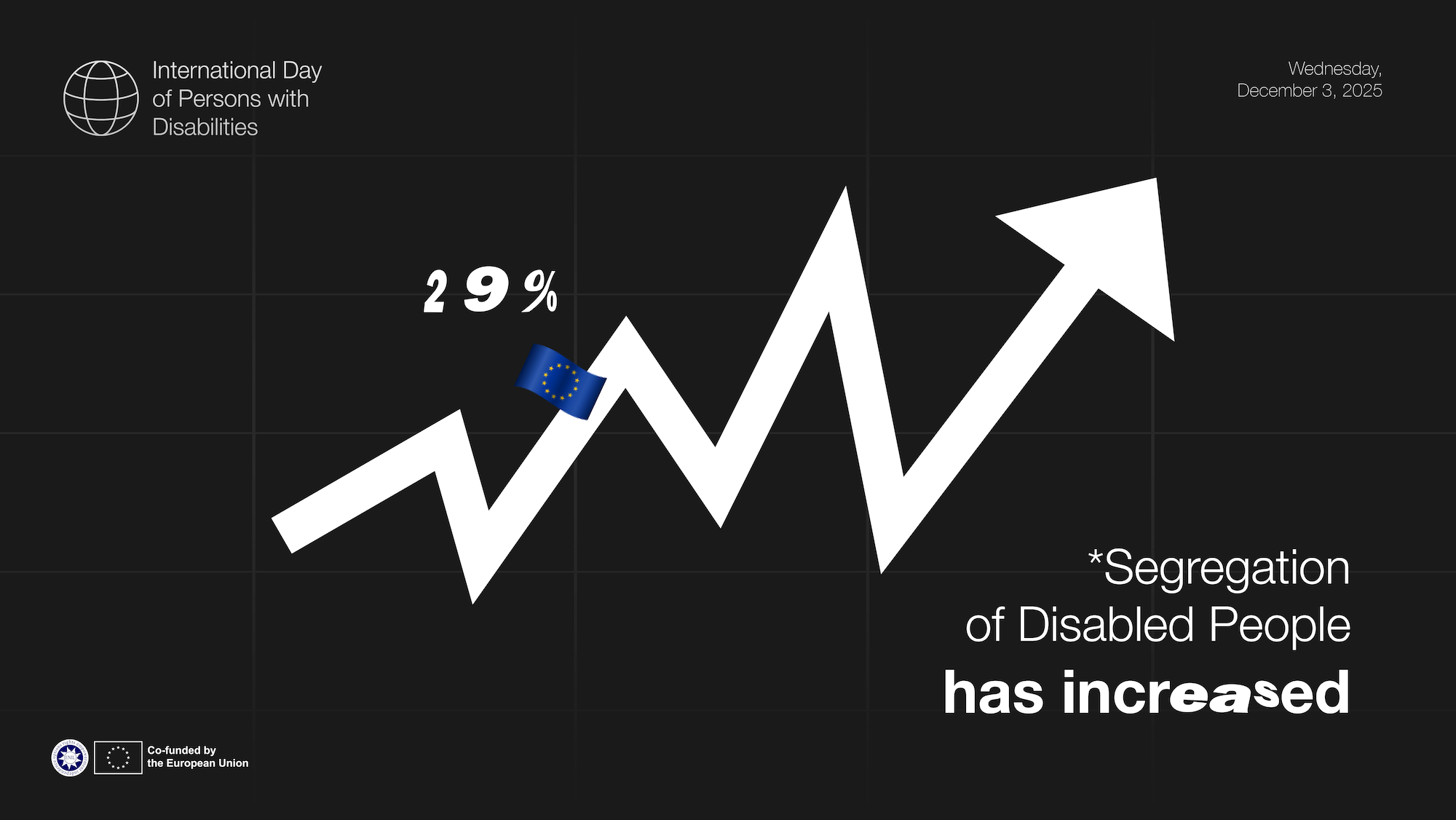Lithuania ratified the UN Convention on the Rights of Persons with Disabilities (CRPD) in 2010, but many people are still not aware of this commitment, or even the rights of people with disabilities. By ratifying the CRPD, Lithuania has committed to ensuring equality and non-discrimination for people with disabilities, access to public resources, equality before the law, independent living and participation in the community, among other.
The right to independent living, which requires that people with disabilities are able to choose with whom they want to live, where they want to live and what service they want to access, is not adequately taken into account during the ongoing deinstitutionalisation process. In Lithuania, deinstitutionalisation is not heading in a direction that could ensure access of people with disabilities to independent living.
The process began by sorting people with disabilities into different groups. What type of service they will be offered depends on how self-sufficient they are, what their abilities and needs are. Based on this evaluation, people with disabilities are either moved into group homes (also referred to as independent living homes, or sheltered housing) or, if they require more support, continue to live in special nursing and social care institutions. There is no access to personal assistance for those leaving institutional care. Rather than deinstitutionalization, this leads to reinstitutionalization of people with in smaller institutions. It goes against the CRPD and the General Comment No. 5 on Article 19 CRPD.
So far, 273 disabled people were moved into 21 independent living homes, while 251 people were moved into 28 group homes. A further 11 group homes will be built for 174 disabled people in 2018, which the Government is very proud of.[1] At the same time, serious concerns are being raised by the Independent Living movement.
In addition, over the next 3 years, the Government will implement 2 pilot projects on personal assistance; too long for those waiting for their right to live independently. The first pilot project, covering people with mental disabilities, will start this year. The second pilot project, for all other impairment groups, will start next year and go on for 2 years, according to the Government plans. There are concerns that after this 3-year period, the Government may change and the guidelines on personal assistance developed during the piloting phase will be forgotten.
Written by Kristina Dudonyte, a member of ENIL
[1] For more information, please see: https://socmin.lrv.lt/uploads/socmin/documents/files/pdf/9817_pertvarkos-pristatymas-ek-anglu.pdf and https://socmin.lrv.lt/lt/veiklos-sritys/seima-ir-vaikai/institucines-globos-pertvarka


